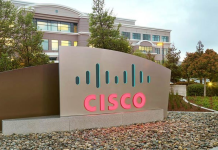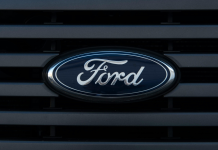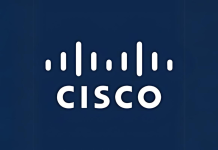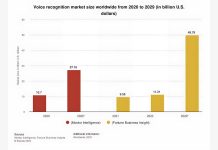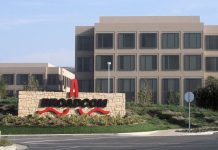Mike Cannon-Brookes and Scott Farquhar became poster boys for the Australian tech startup sector as they quickly launched a global corporation at a time when capital was hard to come by and entrepreneurs were few and far between. In a way, the college friends “faked it until they made it” to a headline commercial success in the enterprise software space.
Atlassian, the productivity and collaboration software leader, which founded its mission on “Don’t #@!% the customer,” began with just a $10,000 credit card. The young Sydney-based firm was led by two best mates, only one a college graduate, with all other employees being friends of the founders. Atlassian’s co-founders and co-CEOs, Mike and Scott, met through the University of New South Wales’ co-op scholarship program, wherein they maintained sub-par grades at best. In 2001, they registered the Atlassian name with ASIC. The next year, they launched the company out of a small apartment.
When Atlassian’s founders set out to start a business, they had no clear vision in mind aside from knowing that they wanted to build software – and wanted to avoid the “real jobs” that they saw their fellow co-op scholars stepping into. Farquhar has claimed that he did not learn the word entrepreneur until him and Cannon-Brookes were awarded the Young Entrepreneurs and Entrepreneurs of the Year award by Big Four accounting firm Ernst & Young in 2006.
The main idea for Atlassian’s Jira software, an issue tracking system, was to make the product extremely cheap so that it sold itself. As the software was replicated and distributed in mass volume and on a global scale, the product would become even cheaper and easier as Internet speeds improved.
Atlassian held one particularly long and grueling fundraising round in 2001 after the tech bubble in the late 90s, which worked to spook investors and entrepreneurs alike. With faith in Internet startups at an all-time low, few heard of the bootstrapped company until about a half-decade after launch, when Atlassian surpassed $15 million in revenues.
As Atlassian gained traction, Cannon-Brookes and Farquhar turned down handfuls of approaches for investments and takeovers, which they saw as failing to fully capture the company’s value. The tech executives turned out to be right.
In 2010, Mike and Scott got their major break through with a $60 million capital injection from Palo Alto, Calif.-based Accel Partners, in what was then the venture fund’s biggest investment in a software company.
The now 30-something-year-old founders have led Atlassian with five core values, starting with “open company, no bullshit,” followed by “build everything with heart and balance,” the classic “don’t #@!% the customer,” “play as a team,” and “be the change you seek.”
Upon acceptance of Accel’s partnership with Atlassian, Mike and Scott received custom t-shirts stating the acronym DFTPC, or “Don’t #@!% the portfolio company.”
Atlassian had maintained profitable operations until its IPO in December 2015, when management decided to use the huge capital influx to super-charge growth. In January 2017, the company agreed to buy Trello, a popular project management app, in a deal worth $425 million.
In July, Atlassian announced full year 2017 results which beat both top and bottom line expectations, along with free cash flow estimates. Despite the positive surprise, shares have declined over the recent weeks as bulls suggest the market is misunderstanding the founders’ “growth over profits” strategy. Moving forward in FY18, Atlassian foresees revenues booming at about 34% year-over-year (YOY) to $620 million, with a loss of $0.19 on a per share basis.
Trading at $35.98 per share as of August 2017, TEAM reflects an approximate 18.6% gain over the most recent 12-month-period and a 49.4% return year-to-date (YTD). The firm, which services customers including Amazon, Tesla, P&G and Coca-Cola, heads off against startups including Slack and traditional tech giants such as Microsoft Corp. and Facebook Inc.
Both Mike and Scott were recognized on Fortune’s 40 under 40 list in 2016. Alongside serving as the co-CEOs of Atlassian, the company’s founders have their hands full in the tech world.
Mike, who heads product design and sales and marketing at Atlassian is an active angel investor, a non-executive director of a tech-focused bank in Australia called Tyro, an adjunct professor at the University of New South Wales’ School of Computer Science and Engineering and the chair of Computer Science and Engineering Industry Advisory Board. In a refreshingly honest TEDx conference in Sydney, the tech CEO told the audience that he still combats “imposter syndrome,” no matter how successful he is.
“Most days, I still feel like I don’t know what I’m doing,” admitted the accomplished tech executive. Instead of letting feelings of inadequacy get to him, Mike says he uses imposter syndrome as a “force for good,” staying confident and always giving his best effort. He uses the example of when he was extremely unqualified to debate with Tesla’s CEO Elon Musk on Twitter, yet managed to get a conversation started about South Australia’s power crisis.
Scott, who heads engineering and research at Atlassian, frequently speaks to audiences in Australia and around the world and remains extremely active in the Sydney startup scene with contributions to Australian seed fund StartMate and venture capital fund Blackbird Ventures. He also mentors women through the Australian Business Women’s mentoring program and lectures on entrepreneurship at the University of New South Wales.
Like a growing number of their Silicon Valley peers, Atlassian’s co-founders use their positions to do good in the world, pledging to donate 1% of the company’s equity, profit and product to charity, along with offering employees vacation time to volunteer.





